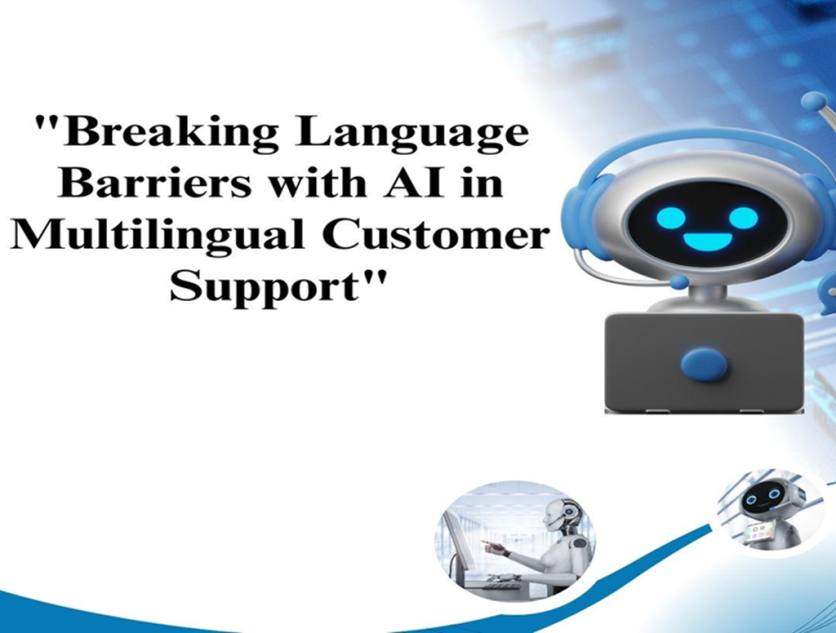
In today's interconnected world, businesses can no longer afford language barriers when it comes to customer support. Sravan Yella, from Hewlett-Packard, recently published a compelling study on this subject in the Journal of Advanced Research Engineering and Technology (JARET). We sat down with Sravan to explore his insights on how artificial intelligence (AI) is transforming multilingual customer communications, enhancing customer satisfaction, and driving business growth.
Q1: Sravan, why is multilingual customer support becoming so critical for businesses today?
Sravan Yella:
Globalization has opened doors to international markets, but it also brought challenges like diverse linguistic preferences. Studies show that 75% of consumers prefer to buy products in their native language. Without effective multilingual support, companies risk alienating a major portion of their audience. AI technologies have made it easier to bridge these language gaps at scale.
Q2: How is AI revolutionizing multilingual customer communication?
Sravan Yella:
AI tools like chatbots, virtual assistants, and machine translation have made multilingual communication faster, more scalable, and cost-effective. AI doesn't just translate words; it can also adapt content culturally (localization) and analyze customer sentiment in multiple languages, ensuring a more personalized, meaningful interaction.
Q3: What are the main benefits businesses gain from adopting AI-driven multilingual support?
Sravan Yella:
There are several key benefits:
- Cost Savings: Automation reduces dependency on large human support teams.
- Consistency: AI ensures uniform messaging across languages.
- 24/7 Availability: Chatbots never sleep; they provide around-the-clock support.
- Scalability: AI handles vast volumes of customer queries without compromising quality.
- Cultural Sensitivity: Advanced localization adapts content to different markets, not just linguistically but culturally as well.
Q4: Can you share a real-world example of a company successfully leveraging AI in this area?
Sravan Yella:
Sure! Blend Localization Insights is a great case study. They integrated AI-driven chatbots and translation tools into their customer support workflows. This not only improved response times but also significantly enhanced customer satisfaction and loyalty. Their use of AI for sentiment analysis also allowed them to address client concerns and fine-tune their service offerings proactively.
Q5: Are there challenges or ethical considerations companies should be aware of when deploying AI in customer communications?
Sravan Yella:
Absolutely. AI must be trained to respect cultural and linguistic nuances to avoid misunderstandings. Moreover, companies must consider data privacy laws across different regions and ensure their AI systems are not biased. A hybrid approach that combines AI efficiency with human oversight often works best to maintain quality and ethical standards.
Conclusion
As global markets grow increasingly interconnected, multilingual customer support is no longer a luxury—it's a necessity. Sravan Yella's research highlights how AI can be a game-changer in this arena, offering businesses the tools they need to foster trust, loyalty, and growth across diverse markets. However, success lies in balancing the power of AI with a deep understanding of cultural context and a commitment to ethical practices. In the future, companies that embrace this balanced approach will undoubtedly stand out in the global marketplace.
Final Words
The journey toward mastering multilingual customer communication is both exciting and essential. As Sravan Yella reminds us, AI is not a replacement for human connection—it is an enabler. Businesses that thoughtfully integrate AI into their global strategies will not only break down language barriers but also build bridges of understanding and loyalty with customers across every corner of the world. The future belongs to those who speak their customers' language—and AI is the universal translator that will help them do it.
ⓒ 2026 TECHTIMES.com All rights reserved. Do not reproduce without permission.





